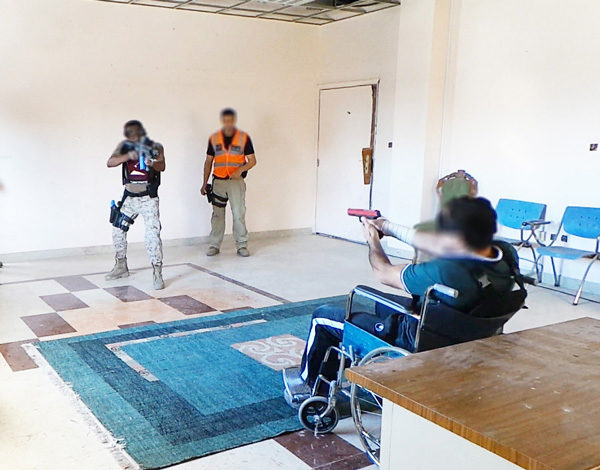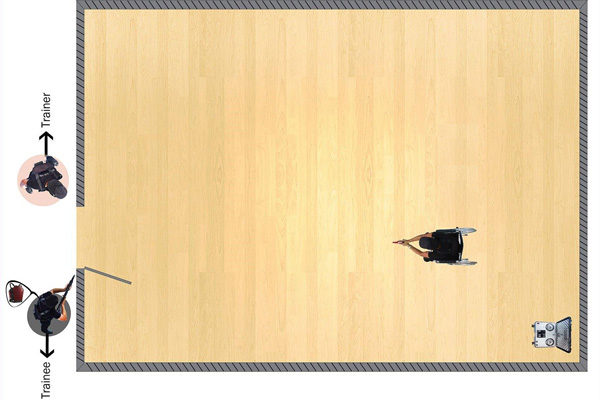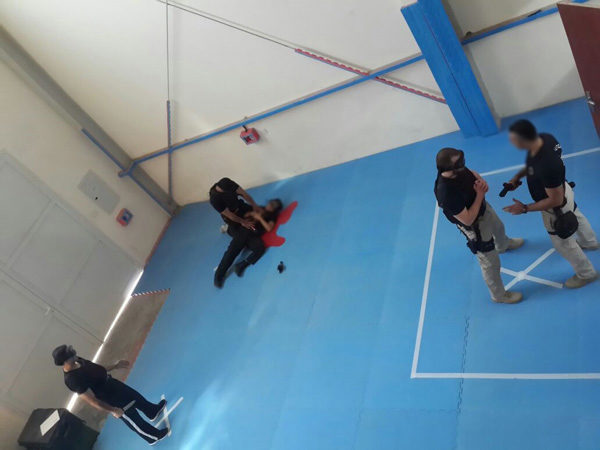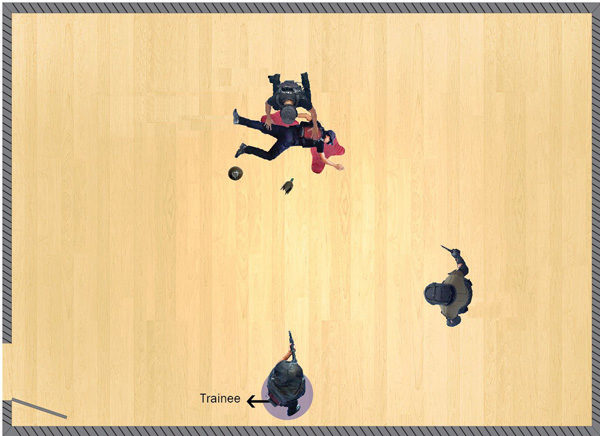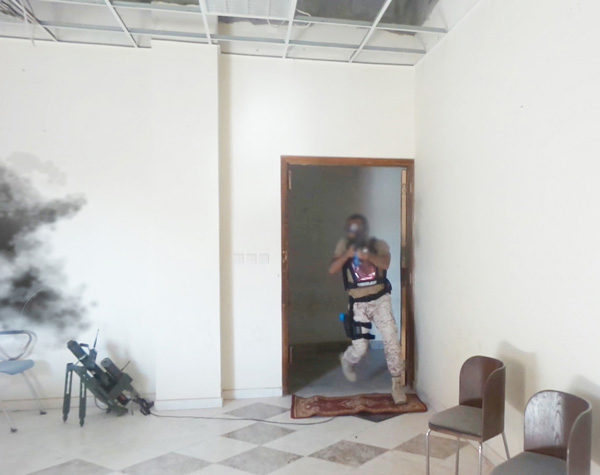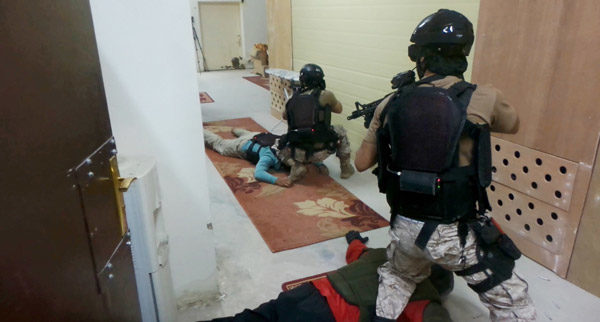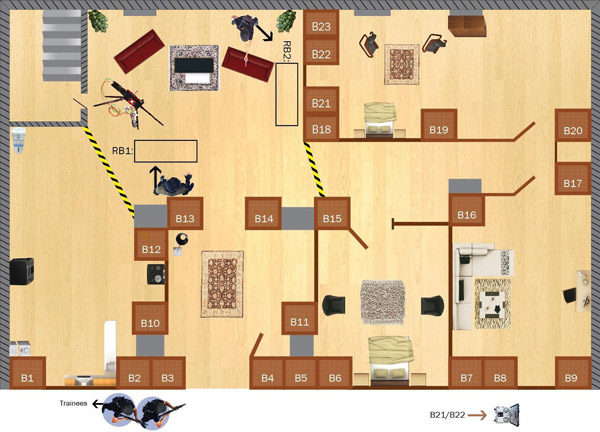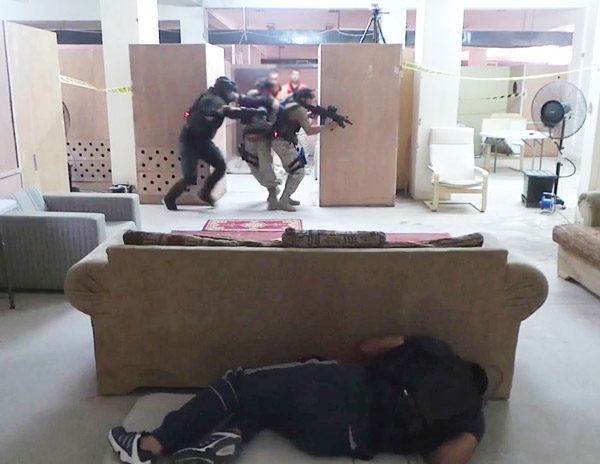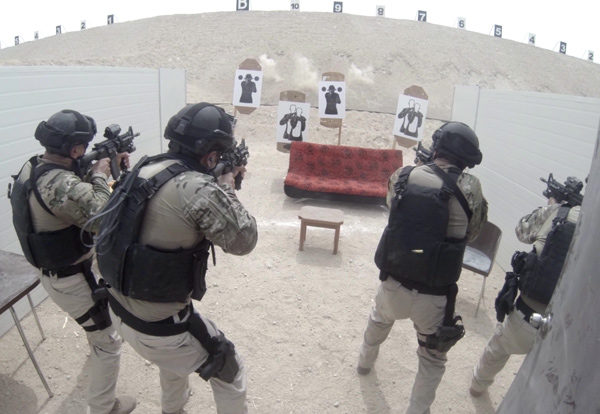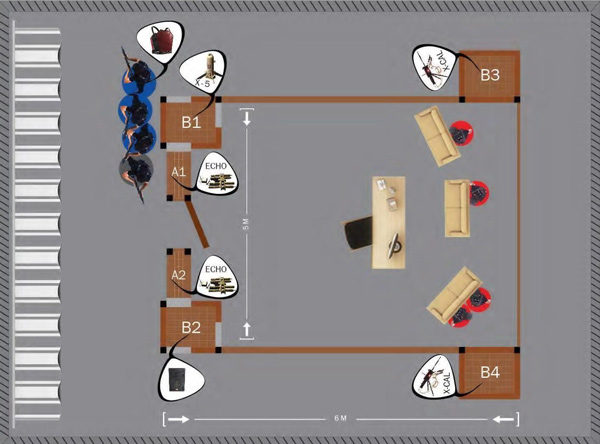A military soldier or law enforcement officer’s survival requires him to be able to quickly assess a situation and respond with appropriate actions in dynamic, life threatening and time pressured situations that are likely to be encountered while carrying out his duties.
As an occupation, military and law enforcement are among the most demanding and hazardous jobs. These occupations require effective performance under conditions that are extreme, dangerous, and highly stressful. The Military and Law Enforcement both have a similar problem with immersing troops and law enforcement personnel into stressful training scenarios that include contextually relevant environments in which the skills for resilience and situational awareness can be practiced under realistic potentially violent conditions. Therefore, Elite Tactical strongly believes that Scenario Based Training is the most effective way to ensure that the trainees are prepared to respond appropriately during a real world encounter as this type of training allows the Soldier or Candidate the opportunity to experience and overcome the psychological and physiological stress the body experiences during a life threatening situation. During a life-threatening high-stress encounter one instinctively reacts the way they were trained. Moreover, Scenario based training can be an optimal instructional strategy due to its various benefits, such as:
- It is very realistic, which makes transferring skills to the job easier.
- It allows the opportunity for training with a variety of scenarios, which facilitates and accelerates expertise.
- Training is interactive and engaging, which enhances motivation and learning.
- Utilizing carefully crafted scenarios and measures it facilitates the diagnosis of performance.
- It allows practicing critical tasks in a safe environment.
With the above being said and through the past years, Elite has acquired the required experience, teams, training gears and all the resources necessary to design custom RBT Training programs and execute them within the client’s framework and training needs. Below is a summary of guidelines for scenario development:
- A job analysis should identify who should be trained, the tasks to be trained, and what competencies are
required to perform these tasks. - Development of an effective scenario is a cooperative task requiring input from subject matter experts and training personnel.
- Scenarios should be based on realistic encounters that may be drawn from field reports and real‐world cases.
- Events embedded in the scenario should trigger key behaviors that are identified in the overall training
objectives. These trigger events provide opportunities for performance measurement. - Carefully script the roles of other participants in the scenario and train them to play these roles.
- Follow milestones for scenario development:



